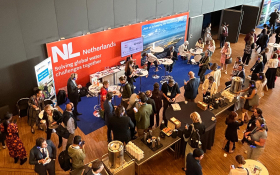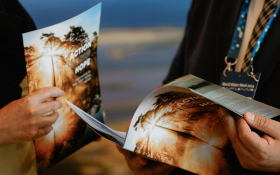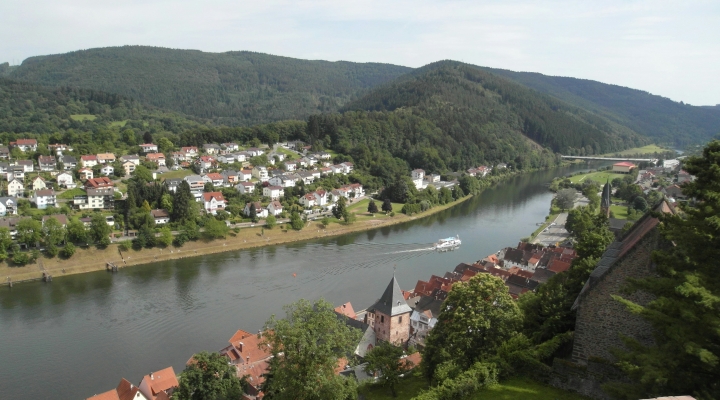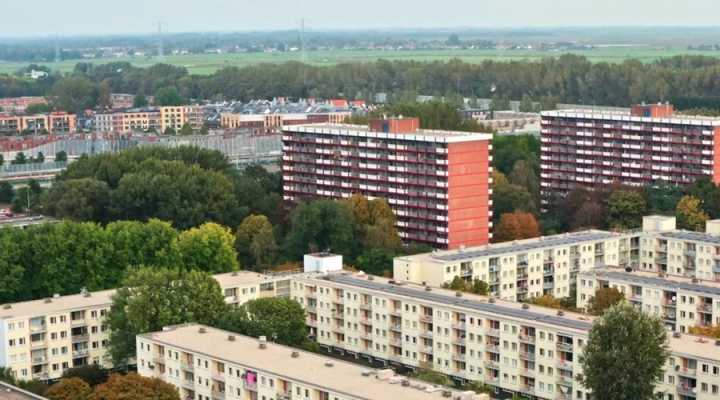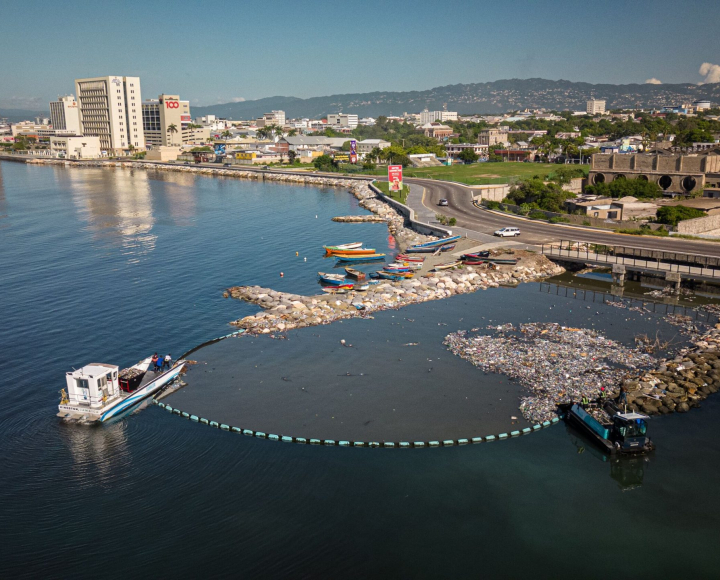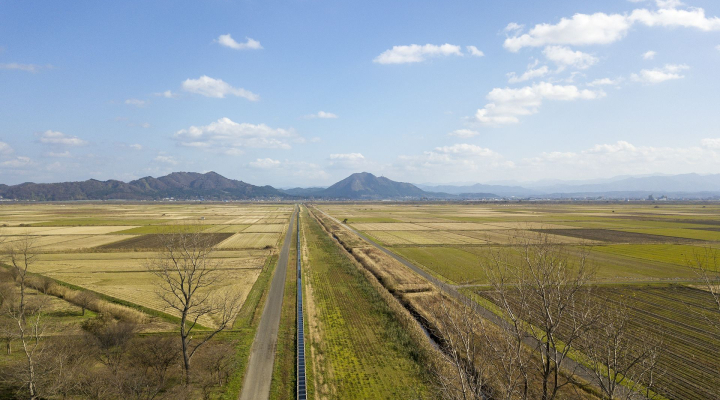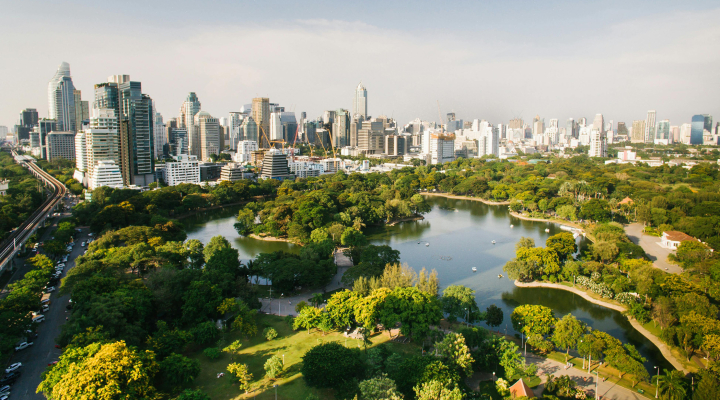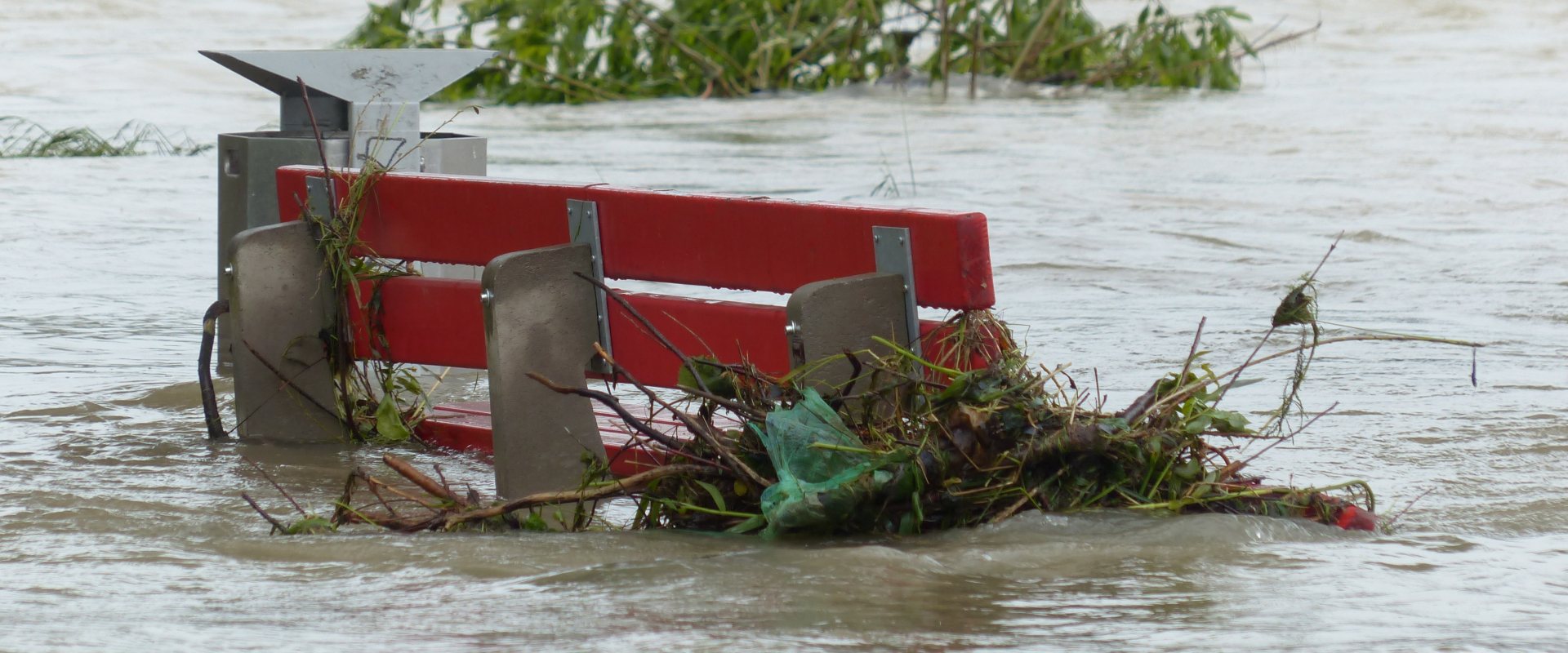
WWWeek: The many values of large-scale nature-based solutions
Nature-based solutions (NBS) at the scale of landscapes, such as flood plains, have multiple benefits that make them economical viable. Restoration of these natural systems are more sustainable than traditional engineering solutions. This concludes the report 'Economic rationale of NBS in freshwater ecosystems' that was launched by Deltares and World Wildlife Fund at the Stockholm World Water Week and discussed during an online session on 27 August.
Many benefits
The report outlines how nature-based solutions (NBS) can help reduce the impact of flood disasters and droughts. The restoration of old flood plain areas do not only reduce flood risks but also improve water quality, nutrient retention, carbon storage and fresh water availability.
The report preludes on the European Green Deal and the investment of 1 trillion euro in green economic development.
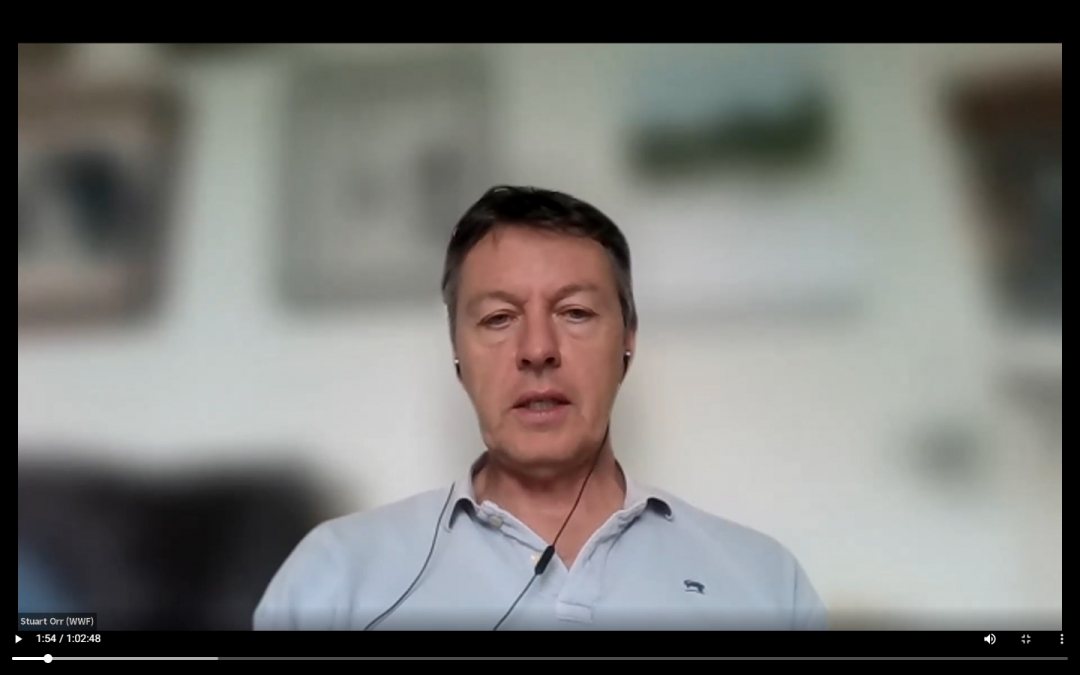

Larger scale
‘We are experiencing more floods, droughts and storms. And clearly with the new IPCC-report, it is clear that the worst is yet to come’, said Stuart Orr, head of fresh water at WWF setting the scene of the session. ‘We urgently need to develop a pipeline of ambitious large scale nature-based solutions to build more resilience in economies and ecosystems’.
According to Orr water is at the heart of this challenge. ‘We have to build and prepare for that climate reality and enhance our rivers, lakes and wetlands. This should include the protection of biodiversity that is so acute in fresh water systems’, he added. ‘The scale of the climate and nature crises is big and we need a landscape approach to build resilience faster’.
Orr mentioned three such ambitious initiatives, being Resilient river deltas, Blue heart of Africa and Living European Rivers.
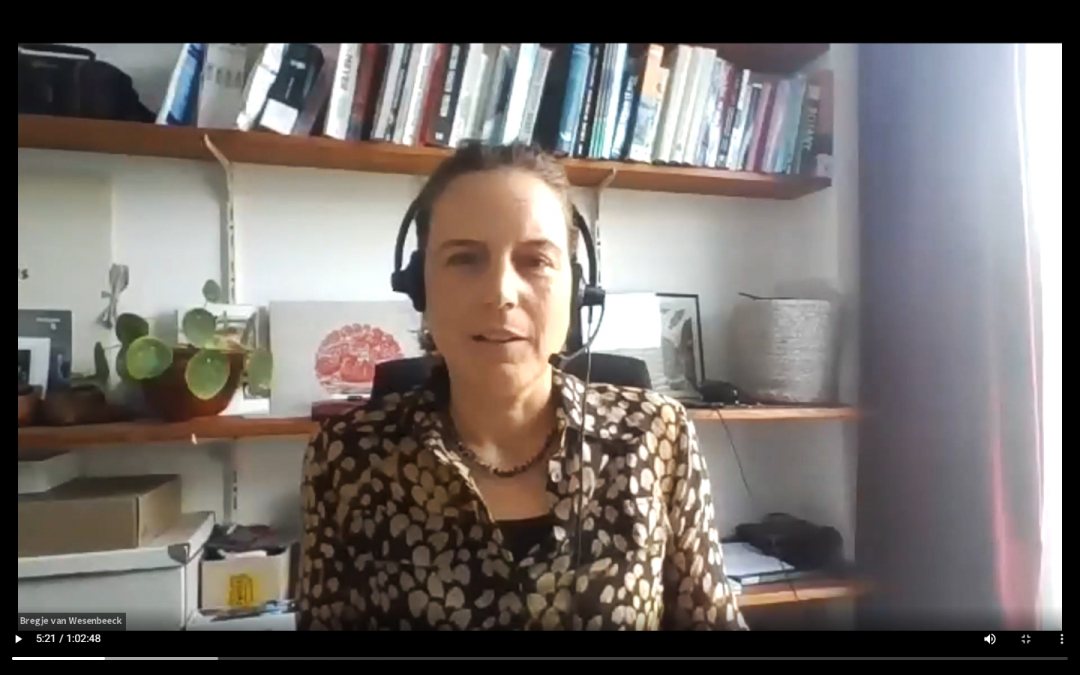

More wetlands
Bregje van Wesenbeeck, expert on nature-based solutions at Deltares, provided examples of how to apply NBS-solutions at the scale of a landscape. ‘It is important to realise that these solutions are part of a wider portfolio of intervention measures and that they can fit in any environment and can mitigate multi hazards. We have examples for the urban, fluvial, mountainous and coastal environments’.
Van Wesenbeeck gave three examples in Africa where NBS-solutions have been implemented in the existing ecosystems. ‘In Kigali, Rwanda, a former wetland has been restored to retain storm water that runs off from the surrounding hills. This wetland acts as a sponge and can recharge the groundwater. It also connects to other still existing wetlands outside the city. For the future, we have recommended the city to scale up more wetlands and to enhance the biodiversity. As well as as upstream land management to avoid erosion.’
It is important that NBS-solutions are integrated with the existing infrastructures, Van Wesenbeeck concluded.
Reflecting on the suggestion by Orr to create a pipeline for large scale nature-based solutions on the level of landscapes, Van Wesenbeeck addressed the issue of financing. ‘There are many funds available and it is good to see that development banks start to invest more in NBS-solutions. I do not see the funding itself as a problem. But more how to use the funding in a good way and stop the incentives that push us in the wrong direction’.
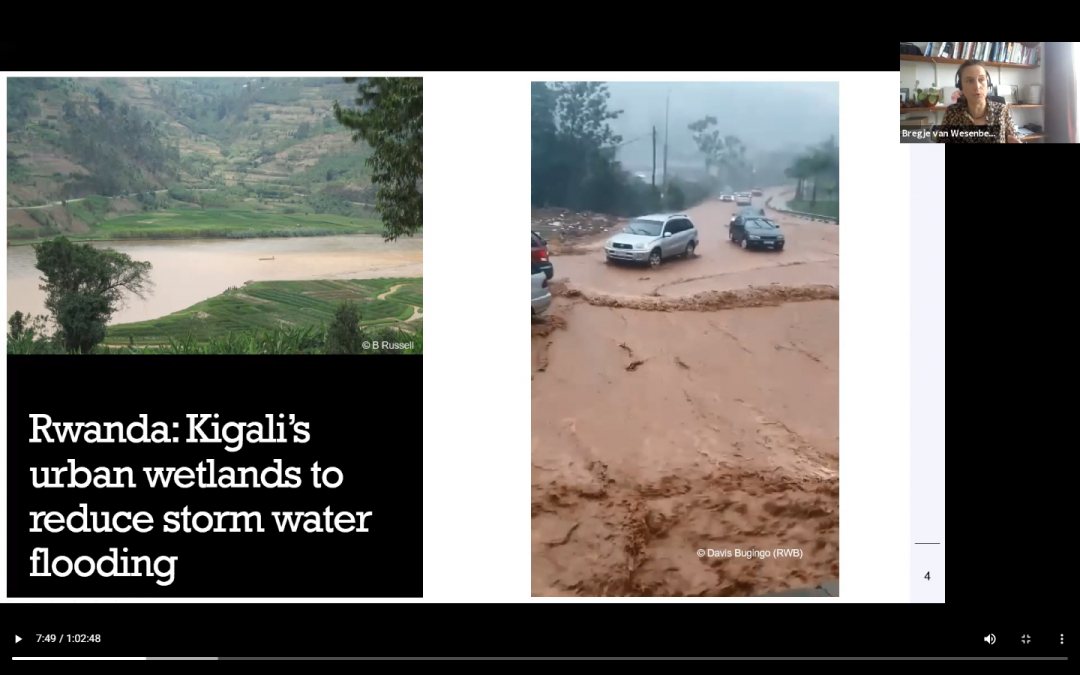

Utilities need to step up
During the whole week of Stockholm World Water Week many speakers urged water utilities to step up and get themselves more involved in nature-based solutions. ‘There must be smarter ways to store storm water in urban areas than building big underground basins’, said Bernard van Nuffel, president of Aqua Publica Europea -the European association of public water operators- and president of Vivaqua, the Brussels water utility.
Van Nuffel wants water operators to develop new strategies and even change their missions. ‘They are at the fore front of the fight against climate change’, he said. ‘Traditionally, water operators are engineering companies building pipe systems and treatment plants. This is no longer enough. They must become ecosystem enterprises that are fully committed to promote and develop nature-based solutions.’
The full report Economic rationale of NBS in freshwater ecosystems can be downloaded from the WWF-website




